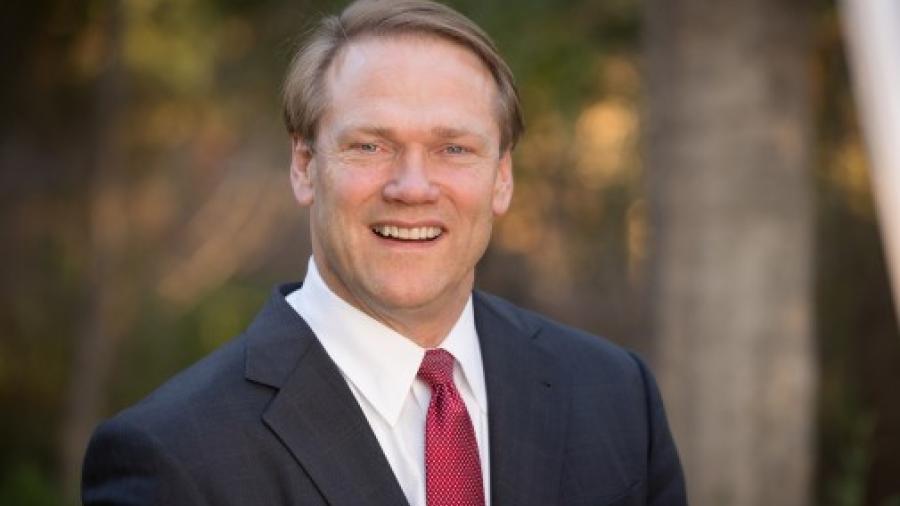Westmont Magazine Helping Students Develop Moral Vision

By President Gayle D. Beebe, Ph.D.
What gives a person moral vision? How does someone develop the capacity to look at a situation and suddenly see it differently? Reading two books by Muhammad Yunus, a recipient of the Nobel Peace Prize, raised these questions in my mind. How is it possible for millions of people over hundreds of years to see total, abject poverty and do utterly nothing to alleviate it—or do things that make it worse? Why does one person undergo the kind of moral reflection that leads him to think he can, in fact, do something? A single act of love and charity by Yunus began the microfinancerevolution.
Yunus has given people opportunities they never had before to be self-sustaining, to begin their own businesses, to experience personal ownership and a sense of pride. I ask myself how I can benefit from his example. How can I generate a new vision of what’s around me and figure out new solutions to intractable problems?
My thoughts turn to Westmont’s mission and what we hope our education achieves. We seek to prepare our graduates to go out into every sphere of society and serve effectively. We’re confident they’re well prepared and that we provide the right education and experiences. But we also hope they leave with the kind of moral vision that allows them to look at some of the great problems of our society and begin to solve them.
Our new initiatives at Westmont will help us achieve that goal. We started the Eaton Program for Entrepreneurship and Innovation about a year ago, thanks to the generosity of David and Carol Eaton. David served on our board of trustees for many years and chaired it for six. That initiative allowed us to hire Rick Ifland ’83, who took a three-year leave of absence from our board to direct the program. He is teaching a class this semester, Business at the Bottom of the Pyramid (see the related story on page 17), which focuses on global entrepreneurship, both capital and social. We want our students to learn capital entrepre-neurship: how to put together a business plan and a finance strategy, build a leadership team, and launch, sustain and grow a business. In the middle of the semester, the students traveled to Haiti to learn how to apply capital entrepreneurship skills to social entrepreneurship. I think this kind of experience propels students to make a great contribution in business and improve the world.
As part of our Westmont Institute for Global Learning and Leadership, we will launch the Goble Center for Global Leadership, thanks to Roy and D’Aun Goble, who both graduated from Westmont in 1981. For many years, Westmont has operated a robust semester-abroad program, but evidence is mounting that experiences overseas occur most effectively in a structured environment. We have developed what we call the cycle of global learning: the pre-trip seminar that gets you ready to enter a foreign culture, the in-trip mentoring as you live the experience and grasp its meaning, and the reentry seminar on campus that helps you consolidate your learning. Too often, students don’t know how to integrate overseas study with their lives and education once they return.
Now we’ve gone beyond that. One of our newer faculty members, Carmel Saad, earned her degree in social psychology at UC Santa Barbara and her doctorate at UC Davis. An ethnic Egyptian born in Egypt, she does research on the benefits of studying abroad and how it enhances creative problem-solving. Neuroscience is demonstrating that the parts of our brain activated when we go overseas for 15 weeks and learn how to live and study in a foreign culture are linked to creative problem-solving.
In his autobiography, Yunus says that receiving a Fulbright award and studying economics at Vanderbilt University in Nashville was a pivotal experience in his life. Being in the United States during the 1960s, one of the most complicated periods of our history, helped him see intractable problems at home and develop the energy to solve them. When we get outside our comfort zone, we tend to recognize and see our own problems in a new way. We hope our students will experience this as they go overseas and encounter different cultures—that they will come home and solve problems.
We bring speakers like Muhammad Yunus to campus as examples of people with moral intellect who capture a vision of making life different for others and press on to achieve it. What a great model for our students who come to Westmont to prepare to serve God worldwide.